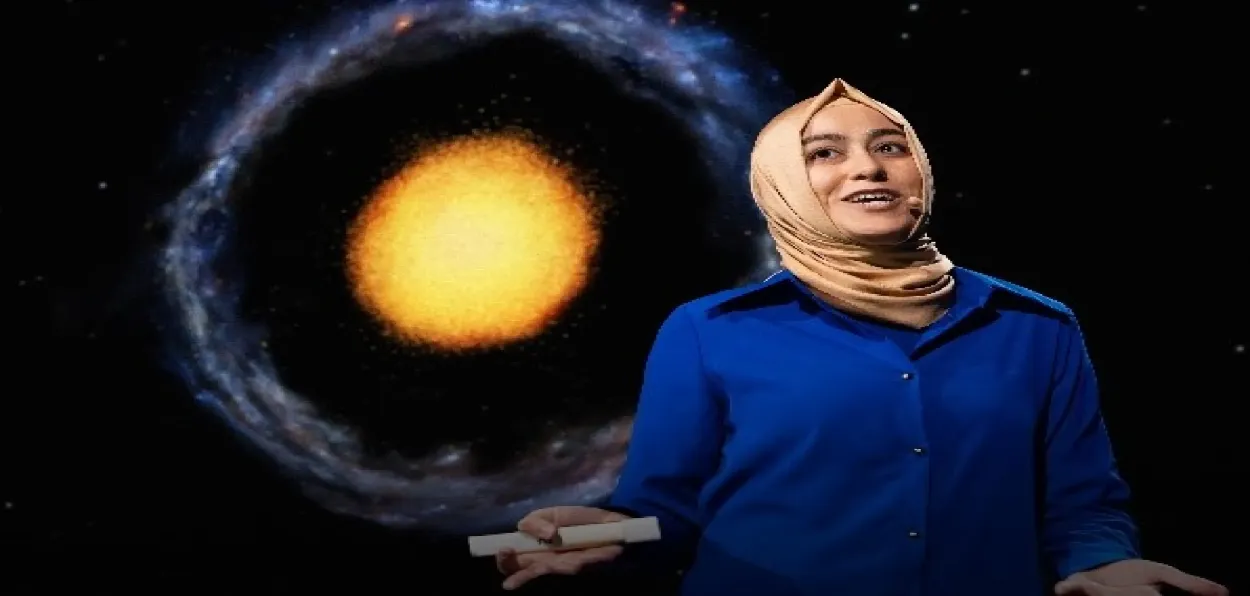
Zafar Darik Qasmi
Is science meant only to bring material comfort, or does it aim to advance peace, justice, and the welfare of humanity? To underscore this purpose, World Science Day for Peace and Development is observed annually on 10 November. The occasion reminds us that science is not limited to laboratories or inventions—it is also a means to promote harmony, equity, and human progress.
Islam, as a complete and compassionate way of life, regards knowledge and science as tools to serve humanity and uphold justice. The Qur’an repeatedly urges people to think, reflect, and observe the signs of creation, inspiring both intellectual inquiry and moral awareness.
When UNESCO established World Science Day for Peace and Development in 2001, it aimed to affirm that scientific advancement gains true value only when guided by ethics and directed toward peace and sustainable development.
The objectives behind celebrating the Science Day are to promote scientific awareness, link science with sustainable development, use science for education, health, and environmental protection, and ensure moral responsibility in all scientific activities.
Islam was the first civilisation to open the doors to scientific inquiry. The Qur’an urges believers to observe the heavens and the earth, the stars, oceans, plants, animals, and even the mysteries of their own creation. This deep observation forms the foundation of scientific investigation.
It contains around 750 verses inviting reflection upon the universe and its phenomena, linking faith with intellectual curiosity. “Indeed, in the creation of the heavens and the earth, and the alternation of the night and the day, are signs for people of understanding.” (Surah Aal-e-Imran, 3:190)
This verse beautifully captures the true spirit of science — observation, contemplation, and analysis.
Muslim scholars during the Golden Age of Islam (8th–13th century) made remarkable contributions to global knowledge. While Europe was still in the Dark Ages, cities like Baghdad, Damascus, Cordoba, and Bukhara flourished as centres of learning and innovation.
Muslim scientists laid the foundations of modern science through groundbreaking work in mathematics, astronomy, medicine, chemistry, physics, botany, and engineering.
Some of the great contributors include:
Al-Khwarizmi – Founder of algebra; the term algorithm derives from his name.
Ibn al-Haytham (Alhazen) – Pioneer of optics who studied reflection and refraction through systematic experiments.
Jabir ibn Hayyan (Geber) – Known as the Father of Chemistry.
Ibn Sina (Avicenna) – Author of Al-Qanoon fi al-Tibb (The Canon of Medicine), a standard medical text in Europe for centuries.
Al-Biruni – Accurately calculated the earth’s circumference and studied its rotation.
Ibn Rushd (Averroes) – Philosopher and scientist who harmonised faith and reason through his commentaries on Aristotle.
These scholars saw no conflict between science and faith; they regarded their research as a means of understanding God’s creation and serving humanity.
Modern science rests on observation, experimentation, and reasoning — principles that Islam introduced more than a thousand years ago. The distinction lies in purpose: science explores how the universe functions, while Islam also answers why it exists.
The Qur’an contains insights that align with discoveries made by modern science centuries later. For instance:
The expansion of the universe is described in Surah Adh-Dhariyat (51:47): “And We built heaven with power, and indeed, We are expanding it.”
The stages of human embryonic development mentioned in Surah Al-Mu’minun (23:12–14) correspond closely with modern embryological findings.
Thus, Islam not only supports scientific reasoning but also gives it moral direction and purpose.
In today’s world, “Science for Development” should go beyond economic or technological growth. According to the United Nations, sustainable development means linking scientific advancement with social justice, environmental protection, and global peace — principles long emphasised in the Qur’an.“And do not spread corruption on the earth after it has been set in order.” (Surah Al-A‘raf, 56)
This verse highlights environmental balance and responsibility. True progress maintains harmony between humans, nature, and the planet.
From the Islamic perspective, science should not only aim at material success but also nurture spiritual closeness to the Creator. Every discovery reveals another sign of God’s wisdom, strengthening faith in the hearts of believers.
Muslims led the world when they valued knowledge and research. Decline began only when they turned away from intellectual effort and sought comfort over curiosity.
Today, the Muslim world must revive the true Islamic spirit of learning by uniting modern science with moral and spiritual values. Islam and science are not in conflict; they strengthen one another. In Islam, seeking knowledge is an act of worship, and scientific discovery reflects the Qur’an’s call to reflect and explore.
When guided by faith and ethics, science becomes a means of peace and human welfare. World Science Day for Peace and Development reminds us that knowledge without moral direction can be destructive, while faith without understanding leads to decline.
ALSO READ: Business leader Sirajuddin Qureshi changed mindset on women's education
True progress lies in the harmony of knowledge and faith, reason and ethics, science and spirituality. Islam teaches that learning illuminates the mind and purifies the heart. When science serves goodness, justice, and peace, it fulfills humanity’s trust as caretakers of the earth. Thus, Islam presents a timeless message: faith gives purpose to science, and science reinforces faith — together building a balanced, enlightened, and peaceful world.
Dr. Zafar Darik Qasmi is a scholar and author.
